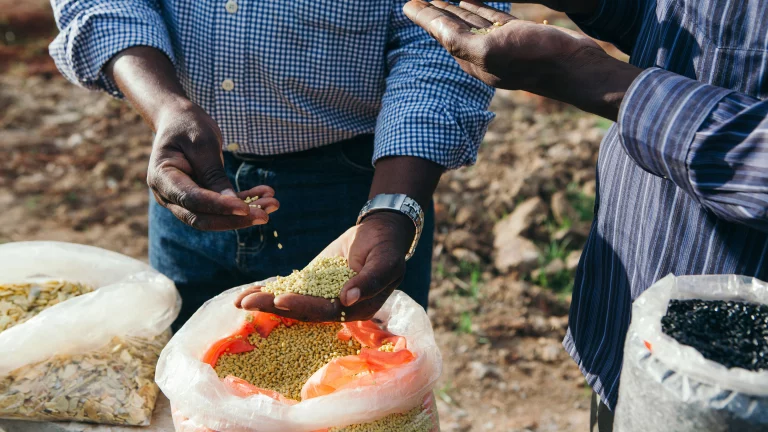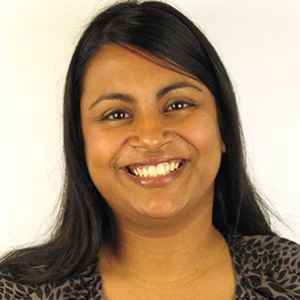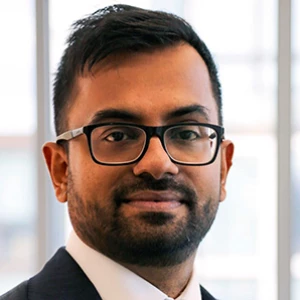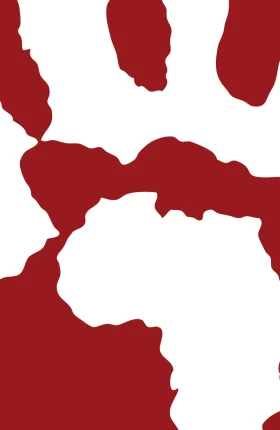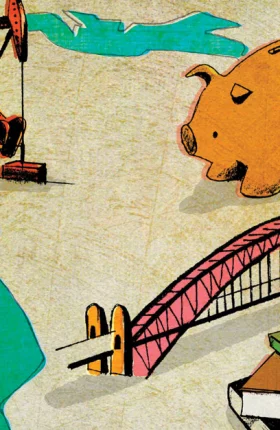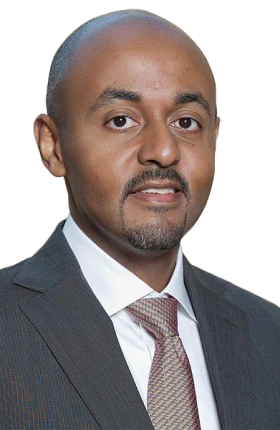As of this writing, the spread of COVID-19 in many African countries has been more contained, and the death toll lower, than some had expected in 2020. The economic fallout of the pandemic for Africans, however, will be different and could be more dire than for the rest of the world.
Sub-Saharan Africa accounts for more than half of the world’s populations living at or below the poverty line. A recent World Bank scenario estimates that COVID-19 could push up to 40 million people in Sub-Saharan Africa into extreme poverty, seriously eroding the progress that African countries have made to reduce deprivation during the past two decades.
When the pandemic was declared in April 2020, BCG counseled African governments to develop comprehensive plans in response to the health care crisis and take on broader economic and societal challenges. We continue to believe that the best course for African leaders is to accelerate economic policy reforms and investments that accentuate inclusion and position countries for a stronger postpandemic recovery.
Indeed, Africa’s economic recovery from the COVID-19 crisis depends on how effectively governments will be able to balance urgent actions to stabilize economies with the structural reforms needed to stimulate sustainable economic development initiatives. An inclusive approach to economic recovery can protect the most vulnerable populations in the short term and improve their prospects in the long term. Select initiatives in Nigeria present a case in point.
The Pandemic’s Economic Fallout in Nigeria
Nigeria is the largest economy in Africa and one of four African countries included on BCG’s Middle Billion list of rapidly transforming developing countries where local entrepreneurs attract global investment, especially in emerging tech-driven industries. Yet almost 83 million people—40% of the country’s population—live below the country’s poverty line of $381.75 per household, per year, according to the 2018–2019 living standards survey by Nigeria’s National Bureau of Statistics.
World Bank 2021 projections for Sub-Saharan Africa as a whole warn of protracted economic flux throughout the year. Even with a modest rebound from recession, there is a risk that a steep drop in per capita income could push tens of millions more people into poverty. South Africa and Nigeria, the continent’s most populous country, face the most severe setbacks, according to the projections. Lower oil prices, combined with pandemic-related factors, add to the strains on Nigeria’s economy and the risks for its most vulnerable citizens.
These concerns prompted the Nigerian government to undertake a wide range of activities to stimulate economic growth with a focus on economic inclusion. Specifically, Nigeria aims to leverage public-private partnerships to create economic opportunities for marginalized populations.
In June 2020, Nigeria’s government revised its economic sustainability plan to double down on stimulus investments and policy interventions in order to revive the growth of bedrock industries (such as oil, tourism, and aviation), and accelerate growth in emerging businesses in other industries (such as small and midsize enterprises and alternative energy) that promote economic inclusion and opportunity. Specifically, the government is focusing on expanding mobile smartphone service, digital financial services, and home-based solar electricity for low-income households.
Mobile Money and Telcos Connect
Using cash and paying bills in person have historically been the norm, especially among the unbanked populations. This has changed since COVID-19. From the early days of the pandemic, leading contactless-payment startups in Nigeria launched initiatives to encourage consumers and merchants to sign up for their services. As BCG has written, financial institutions in Africa were the first to introduce mobile payments.
In Nigeria, the push for cashless transactions has prompted mobile money providers to leverage the networks of telecommunications companies in order to sign up mobile money customers. This is important because most poor Nigerians own a cell phone, but they don’t have a bank account.
The percentage of the adult population with access to financial services in Nigeria grew at a compound annual growth rate (CAGR) of 6% from 2008 to 2012 but by only 1% from 2012 to 2018, according to an annual survey by Enhancing Financial Innovation & Access, a financial-sector development organization. This low rate persisted despite meaningful reforms implemented by the Nigerian government before the pandemic to accelerate financial inclusion.
In 2018, for example, the government issued payment services guidelines for financial service providers and telcos seeking to expand their customer bases among the unbanked, especially in rural areas. However, it took some time for the Central Bank of Nigeria (CBN) to issue the licenses that telcos need to operate as a payment service bank (PSB). In August 2020, the CBN licensed three new PSBs, which can now offer high-volume, low-value digital transaction services, such as remittances, microsavings accounts, and withdrawals. Extending the reach of mobile banking services to rural unbanked populations could also allow the government to deliver social welfare benefits directly to those citizens’ bank accounts.
Pay-as-You-Go Solar Service
The Nigerian government is aiming to install new home solar power systems and minigrids for 5 million low-income households by the end of 2023. Many of those households—which either rely on small, inefficient generators for electricity or have no power source at all—will need to use PAYGo, an installment financing option offered with mobile money bank accounts, to purchase the installation kits for these systems. Customers with an existing mobile money account may apply and qualify for a PAYGo loan more easily than others.
Our analysis shows that a PAYGo loan would make solar kits affordable for about half of the 31 million households that do not have reliable electricity and may also considered to be in a low income bracket. What’s more, we found that 3.2 million out of 17 million households currently using kerosene and candles as their lighting source could afford the monthly PAYGo payments based on their current spending on lighting, plus about 10% of their nonfood budget.
We expect that the scaling of mobile money accounts, along with home solar power kits financed with installment loans, will have a sustained economic impact on low-income populations well beyond any 2021 recovery. A recent USAID research brief estimates that 15% to 30% of PAYGo solar customers will create a credit history for the first time when they purchase a solar home system with a PAYGo plan. That credit history could, in turn, lead to other loans for large expenses, such as school fees, which can consume up to 40% of a family’s annual income. Credit histories are also a critical driver of growth for small-business enterprises and first-time business entrepreneurs. The USAID brief also noted advantages for providers: PAYGo solar customers generate more than twice as much revenue per user for a mobile money provider than the average customer.
A Stronger Recovery and Future
While increases in poverty and economic inequality are possible, they are not inevitable. As we see it, the economic hardships caused by the pandemic give governments a chance to examine the strengths and shortcomings of past policies and strategies and address the current structural inequities in their economies. Linking economic inclusion initiatives across several industries could also have positive, and enduring, multiplier effects. Time will tell whether Nigeria’s inclusive recovery plans succeed. All African governments, and the policymakers who are working with them, must look beyond the crisis to ensure that the resources deployed today build a better foundation to achieve a more equitable future.
The authors would like to thank David Alabi, Teodora Fantigrossi, and Victor Oti for the research and analysis they provided for this article.
